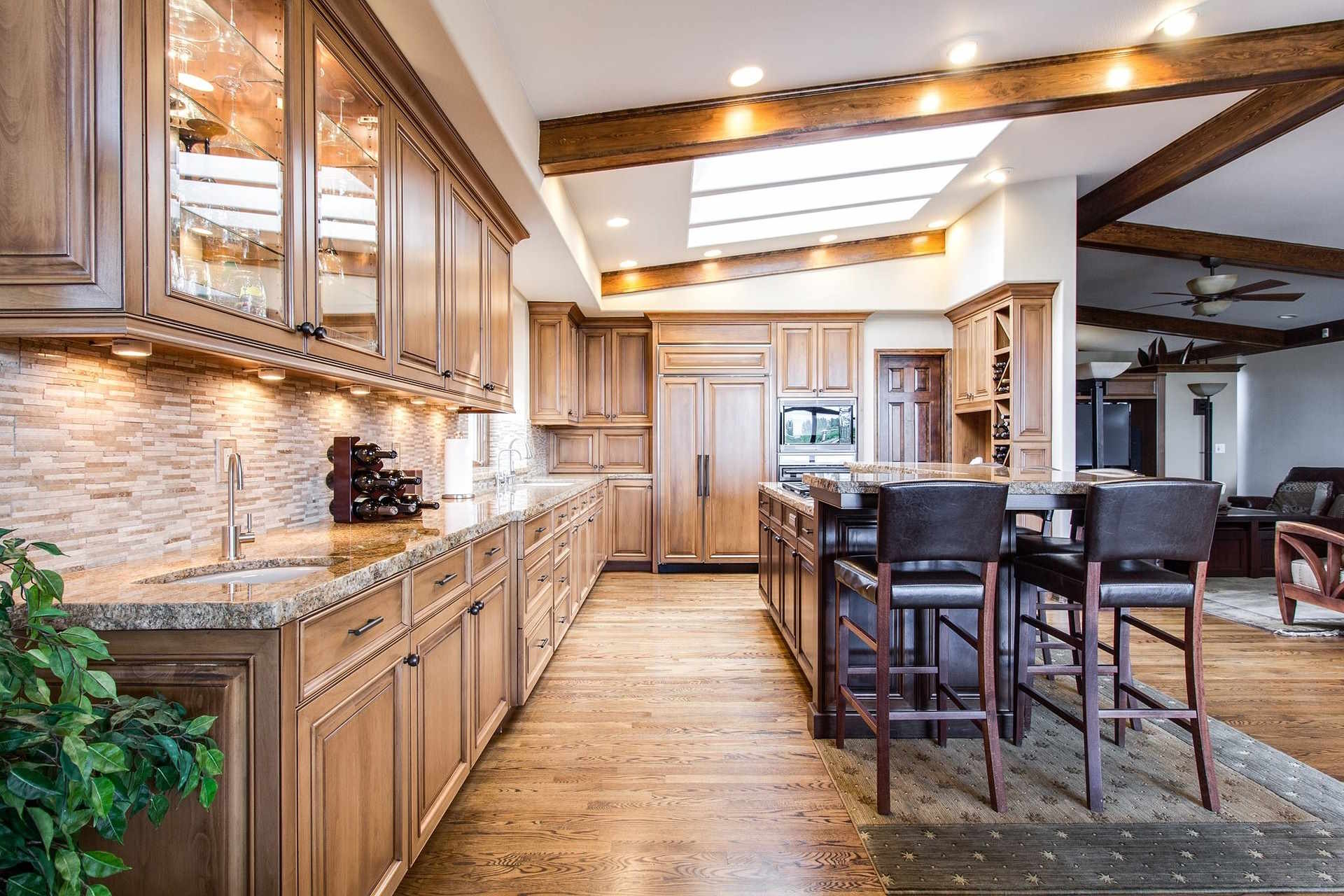Modern Kitchen Design Trends in the UK for 2025: Embracing Minimalism, Smart Layouts, Natural Materials, and Efficient Space Use
As we observe kitchen design trends in the United Kingdom for 2025, there is a notable focus on minimalism, thoughtful layout planning, the incorporation of natural materials, and efficient use of available space, alongside smart technology integration and sustainable energy solutions.

Finding Expert Kitchen Designers in Your Area
The foundation of an exceptional kitchen begins with finding the right professional to bring your vision to life. Local kitchen designers offer invaluable expertise in navigating the complexities of modern kitchen design while understanding regional architectural styles and building regulations. When searching for kitchen designers in your area, consider professionals who showcase diverse portfolios demonstrating versatility across different kitchen styles and space constraints. Look for designers who combine technical knowledge with creative problem-solving, particularly those who stay current with the latest material innovations and technological integrations. Many reputable designers offer initial consultations to discuss your requirements and assess whether their expertise aligns with your vision.
The Evolution of Luxury Kitchen Design in 2025
Luxury kitchen design in 2025 is redefining opulence through thoughtful restraint rather than ostentatious displays. The modern luxury kitchen emphasizes exceptional craftsmanship, bespoke cabinetry, and architectural coherence. We’re seeing a significant pivot toward statement materials that create visual impact through their inherent qualities—think dramatically veined marble islands, handcrafted tiles with subtle variations, and custom brass fixtures that patina beautifully over time. High-end kitchens are increasingly incorporating hidden functionality, with sophisticated appliance garages and concealed storage solutions maintaining clean lines while housing state-of-the-art cooking equipment. Perhaps most notably, luxury kitchen design now places enormous emphasis on spatial flow, creating seamless transitions between cooking, dining, and living areas that reflect the contemporary British lifestyle.
Exploring the Top Kitchen Design Concepts for 2025
Among the top kitchen design concepts gaining prominence in 2025, broken-plan layouts stand out as a sophisticated evolution of the open-plan trend. These designs use architectural elements like split levels, partial walls, and glass partitions to define zones while maintaining a sense of openness. Material contrast is becoming increasingly important, with designers deliberately juxtaposing textures—matte and glossy finishes, rough stone against sleek metal—to create visual intrigue. Biophilic elements are being thoughtfully integrated, from herb gardens built into island countertops to strategically placed windows that frame garden views, strengthening the connection between indoor and outdoor spaces. Additionally, we’re witnessing the rise of the “invisible kitchen,” where streamlined cabinetry and integrated appliances create a seamless look that allows the kitchen to visually recede when not in active use.
Modern Kitchen Design Solutions for Small Apartments
Small apartment kitchens are receiving particular design attention in 2025, with innovative solutions that maximize both functionality and aesthetic appeal. Vertical storage has become essential, with ceiling-height cabinetry and specialized organizational systems that utilize often-overlooked spaces. Multifunctional elements are revolutionizing compact kitchens, from cutting boards that slide over sinks to create additional prep space to islands with adjustable heights that transform from work surfaces to dining tables. Lighting design plays a crucial role in small kitchen spaces, with layered lighting schemes that can alter the mood and perception of space. Color strategy has also evolved, with designers employing tonal palettes and strategic use of reflective surfaces to create depth and visual expansion in limited square footage.
Kitchen Design Technology Innovations Transforming British Homes
Technology integration is perhaps the most transformative aspect of 2025’s kitchen design landscape. Smart appliances now seamlessly connect with home systems, allowing for remote operation and automated cooking processes that adapt to users’ habits and preferences. Touchless technology has become standard in response to heightened hygiene awareness, with motion-activated faucets, automatic cabinet opening systems, and voice-controlled appliances reducing physical contact points. Advanced ventilation systems with air purification capabilities are addressing indoor air quality concerns while operating more quietly and efficiently than previous generations. Perhaps most excitingly, we’re seeing the emergence of interactive surfaces that can display recipes, video calls, or entertainment content, transforming countertops and backsplashes into multifunctional digital interfaces.
Cost Considerations for Modern Kitchen Design Implementation
Implementing modern kitchen design trends varies significantly in cost depending on the scope of work, materials selected, and technology integration. Understanding the investment required helps homeowners plan effectively for their kitchen transformation projects.
| Design Element | Entry Level Cost Range | Mid-Range Cost | Premium/Luxury Cost |
|---|---|---|---|
| Complete Kitchen Renovation | £8,000-£15,000 | £15,000-£30,000 | £30,000-£100,000+ |
| Smart Appliance Package | £2,500-£5,000 | £5,000-£12,000 | £12,000-£25,000+ |
| Bespoke Cabinetry | £4,000-£8,000 | £8,000-£15,000 | £15,000-£40,000+ |
| Natural Stone Countertops | £1,500-£3,000 | £3,000-£6,000 | £6,000-£15,000+ |
| Professional Kitchen Design Service | £1,000-£2,000 | £2,000-£5,000 | £5,000-£10,000+ |
Prices, rates, or cost estimates mentioned in this article are based on the latest available information but may change over time. Independent research is advised before making financial decisions.
The implementation of technology features typically adds 15-25% to the overall kitchen budget, while sustainable material choices can range from comparable to traditional materials to significantly more expensive depending on sourcing and specificity. When planning kitchen renovations, it’s advisable to allocate 10-20% of your budget as contingency for unexpected challenges or opportunities that may arise during the project.
Conclusion
As we look toward 2025, kitchen design in the UK continues to evolve with an emphasis on spaces that support modern lifestyles while reflecting personal values and aesthetic preferences. The integration of minimalist design principles, smart technology, natural materials, and efficient space utilization represents more than passing trends—they signal a fundamental shift in how British homeowners are approaching the heart of their homes. By thoughtfully incorporating these elements, kitchens can achieve a harmonious balance of functionality, sustainability, and timeless design that will serve families well for years to come.




